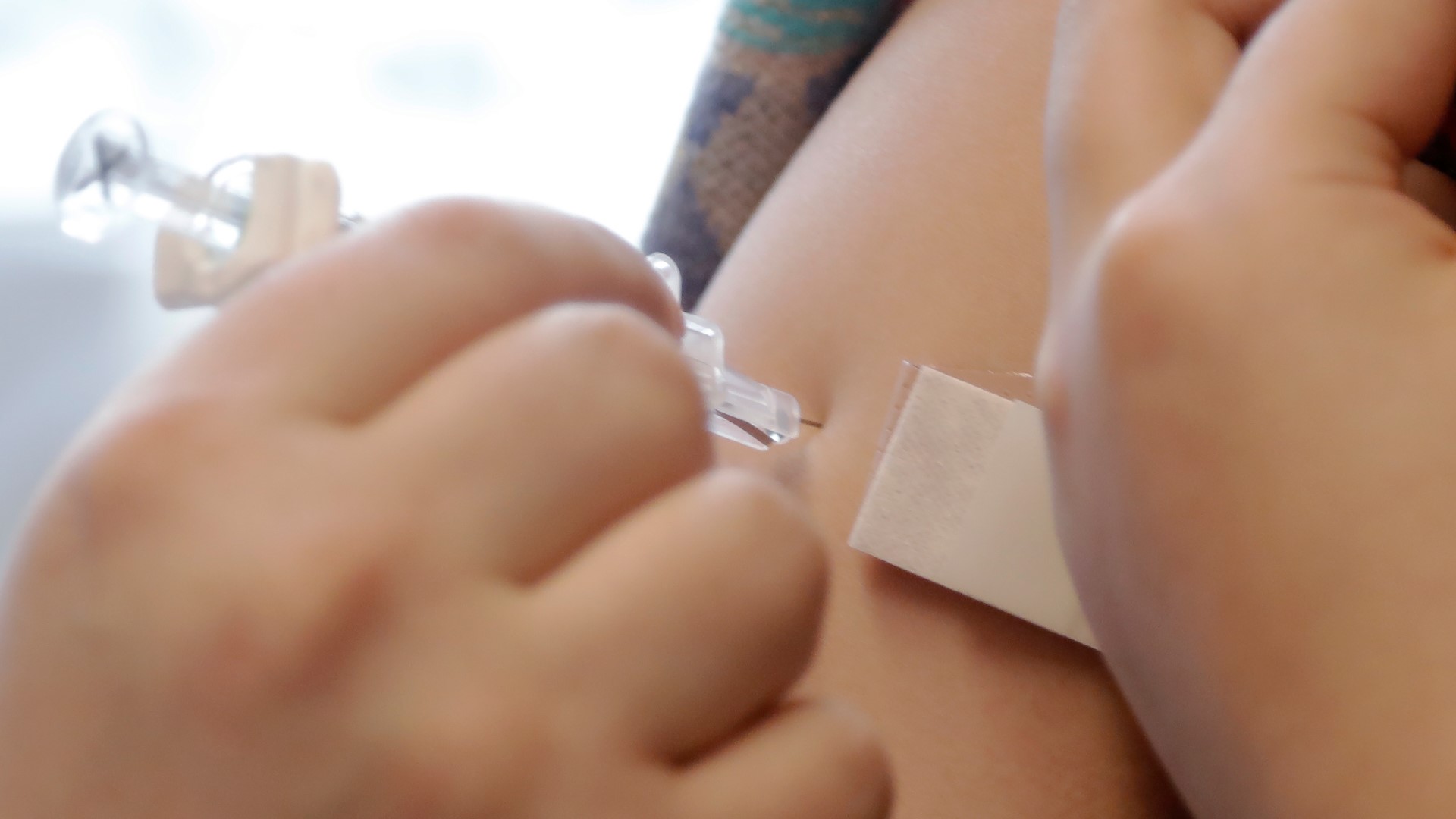MAINE, USA — It's been a contentious debate for months in Maine -- Question 1 on the March 3 ballot, regarding whether philosophical and religious exemptions from vaccine requirements in our state should still be allowed.
At this point, 2020 campaign finance reports show that more than a million dollars have been poured into this battle. Question 1 is a people's veto referendum to reject the law passed by the state legislature last year, eliminating those philosophical and religious exemptions.
Voting 'yes' on 1 would uphold these exemptions, while voting 'no' on 1 would remove them. The law would not force people to get vaccines -- but if they chose not to, they would not be allowed to enroll in public or private schools, use daycare facilities, or work in certain jobs, like those at public health facilities.
This is a look into the campaigns both for and against Question 1, as well as the funding behind them.
'No on 1' explained
For people supporting 'no' on Question 1, a large concern is something called "herd immunity", defined as "the resistance to the spread of a contagious disease within a population that results if a sufficiently high proportion of individuals are immune to the disease, especially through vaccination."
In order to be effective, herd immunity requires a 95 percent or higher vaccination rate. The state of Maine is not there at this point, since about 5.6 percent of people in our state claim philosophical and religious exemptions to vaccines, according to Brandon Libby, an emergency medical physician at Northern Light Eastern Maine Medical Center. That number does not include medical exemptions, either, which are a much smaller population at less than one percent.
"It’s irresponsible for us to do that for our community -- for our children, for ourselves, for our elderly population," Libby told NEWS CENTER Maine, regarding the use of philosophical or religious reasons to avoid vaccinations. "There are individuals who aren’t able to get vaccines."
The cases of preventable diseases in Maine are also on the rise. Last year, Maine reportedly ranked second highest in the nation for whooping cough instances and had its first case of measles in about two decades.
RELATED: Pertussis is widespread in Maine
RELATED: Maine CDC investigating case of measles, first case since 1997
Click here to read more about vaccine exemption rates of students around the state from Kindergarten to grade 12, last updated March 27, 2019.
'Yes on 1' explained
The people supporting 'yes' on Question 1 are primarily concerned with two issues -- their medical freedom and the rejection of "big pharma".
Cara Sacks, the campaign manager for "Yes on 1 Maine to Reject Big Pharma" says that she and her fellow volunteers feel their interests were not heard when the bill was passed by lawmakers last year. They argue that the bill is not in the best interest of our state.
Over the summer, the people's veto collected almost 100,000 signatures as volunteers. They say that although the law wouldn't force Maine children and adults to get vaccines, it would segregate them from school and employment opportunities. In a state like Maine where people can't afford to stay home, Sacks argues that mandate would put people opposed to vaccines in a tough position.
"We know vaccines are an important part of public health," Sacks told NEWS CENTER Maine. "They’re also a medical intervention like any other, and it’s an invasive medical procedure that you’re injecting into your body -- and so you should always have the right as the person who assumes that risk, no matter how great it is, to accept or decline that procedure."
Those in favor of 'yes' on Question 1 also say there is not enough documented evidence showing people who are under-vaccinated are spreading disease in Maine. The Maine CDC reported that the child who contracted measles last year, for example, was vaccinated.
Following the money
Maine Ethics Commission Campaign Finance reports give the public an opportunity to track the money involved in certain campaigns.
For 'No on 1', the PACs (Political Action Committees) contributing to the case are "Maine Street Solutions - Protect Schools" and "Maine Families for Vaccines PAC". As of Thursday, February 27, both groups combined had collected a total of $746,206.99.
The donors who have contributed the most money so far include:
- Pfizer, $250,000 for "Maine Street Solutions - Protect Schools"
- Merck Sharp and Dohme, $250,000 for "Maine Street Solutions - Protect Schools"
- Biotechnology Innovation Organization, $98,000 for "Maine Street Solutions - Protect Schools"
- Maine Hospital Association, $50,000 for "Maine Families for Vaccines PAC"
- Every Child By Two, $48,000 for "Maine Street Solutions - Protect Schools"
Phizer and Merck Sharp and Dohme are both pharmaceutical companies.
For 'Yes on 1', the contributing PACs are "Yes on 1 Maine to Reject Big Pharma" and "Mainers for Health and Parental Rights". As of February 27, both groups combined had collected a total of $553,691.20.
The donors who have contributed the most money so far include:
- Organic Consumers Association, $50,000 for "Yes on 1 Maine to Reject Big Pharma"
- Individual contributors each giving $50 or less, $33,066.51 for "Yes on 1 Maine to Reject Big Pharma"
- Mainers for Health and Parental Rights, $27,066.66 for "Yes on 1 Maine to Reject Big Pharma"
- Stephanie Grondin, $25,000 for "Mainers for Health and Parental Rights"
- Adaptive Digital Media, $19,500 for "Yes on 1 Maine to Reject Big Pharma"
The Organic Consumers Association is a non-profit group, based in Minnesota, that advocates for the organic agriculture industry.
Democrats and Republicans registered in Maine can vote on Question 1 on Super Tuesday, which is March 3, 2020.

